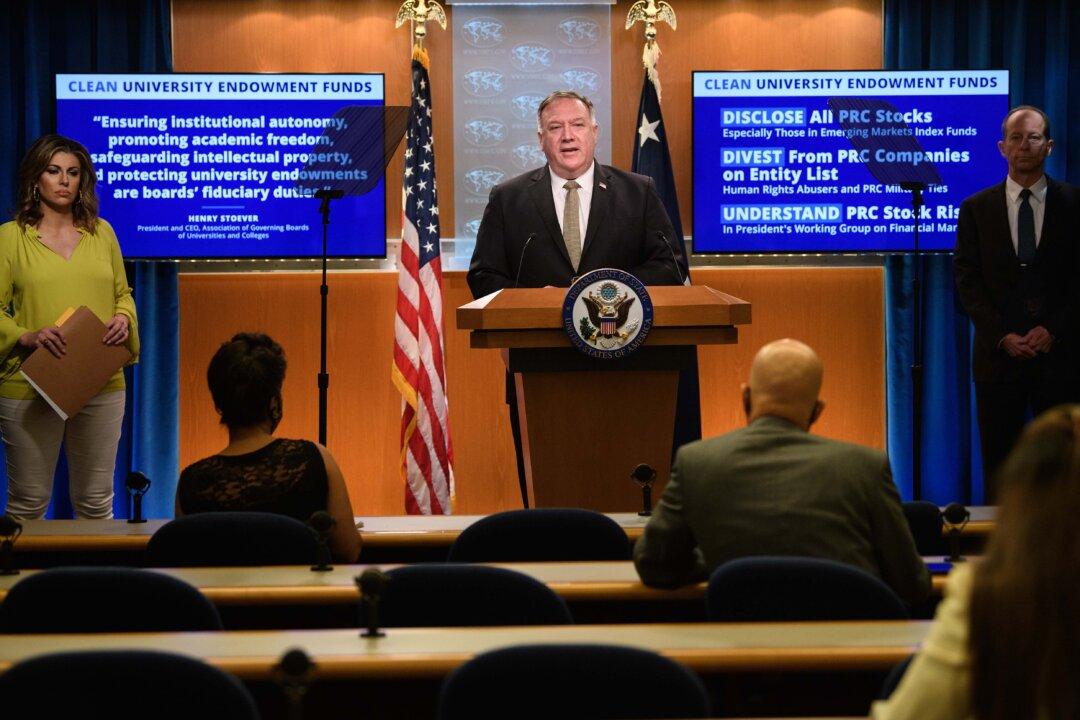Senior Chinese diplomats in the United States will now have to apply for permission to visit U.S. college campuses and meet with local officials, Secretary of State Mike Pompeo announced on Sept. 2, a move he described as an attempt to restore reciprocity in the bilateral relationship.
The State Department also will require the Chinese embassy and local consulates to apply for approval to host events with an audience of more than 50 people outside the mission.





